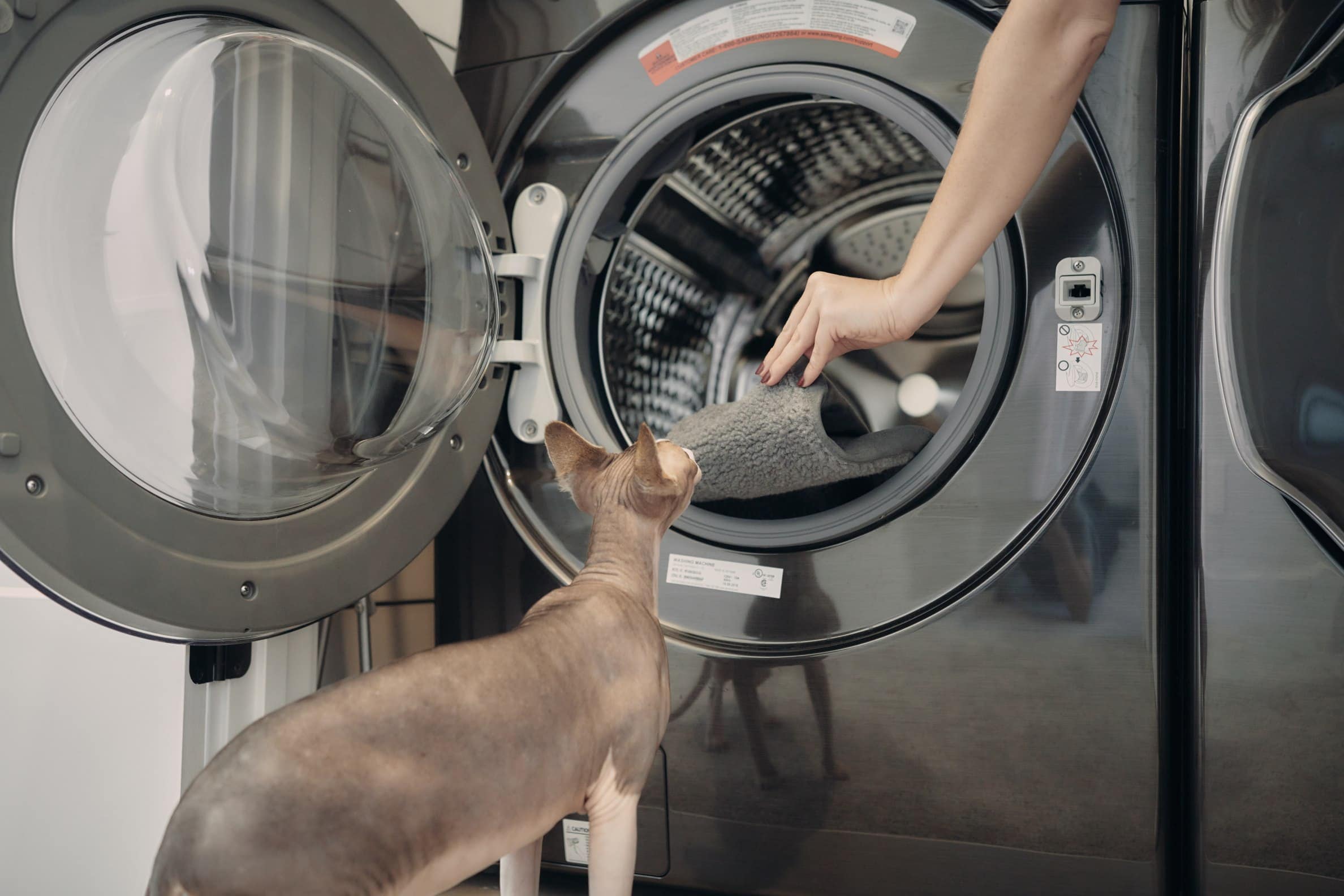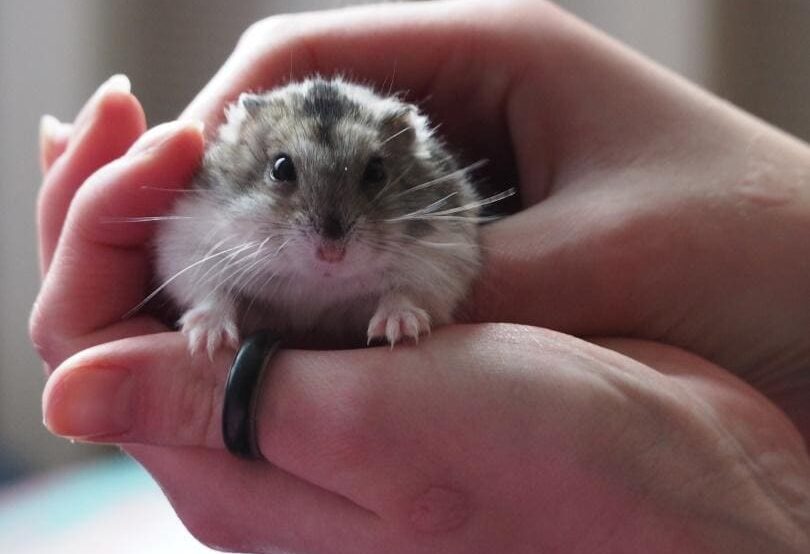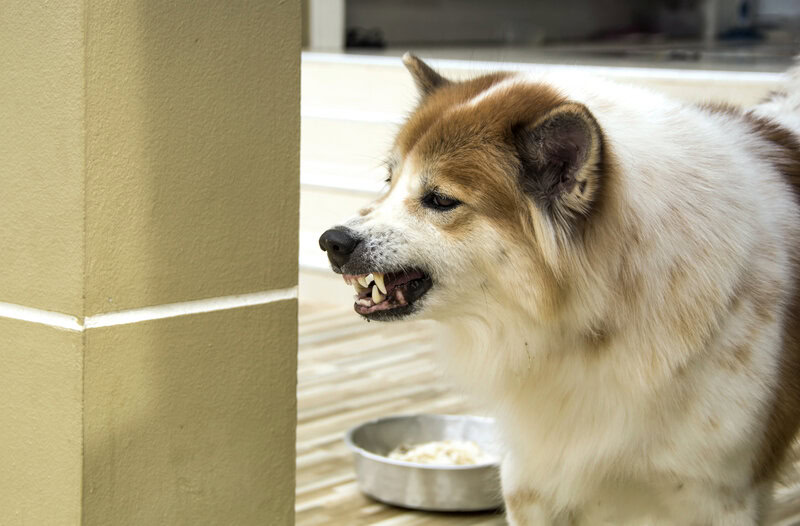VET APPROVED

The information is current and up-to-date in accordance with the latest veterinarian research.
Learn more »Click to Skip Ahead
Every cat parent knows how strong the smell of cat urine can be, and when it’s on your clothes, it can be a frustrating issue. However, it’s not unusual for a cat to pee on their owner’s clothes. In this article, we look into the potential causes of your cat peeing on your clothes. We break these down into behavioral and medical reasons so you have a better understanding of this strange phenomenon and how to stop it.

How to Remedy the Behavior
First and foremost, if your cat is urinating on your clothes, have your veterinarian do an examination to rule out any medical conditions that may be causing the issue. If it is a medical condition, your vet can determine the best course of action to treat your kitty.
If a behavioral problem is the culprit, try engaging in play with your cats individually, especially if you have more than one cat in the home. Make sure you clean the litter box daily. Also, avoid hoods and liners in the litter box because they may make your cat uncomfortable when using it.
And one more tip – Cats can detect scents long after we’ve cleaned them and can no longer smell them ourselves, which opens opportunities for repeat accidents. Proper cleaning is essential to eradicate the odor to avoid your cat returning to the same spot. Investing in a tough enzyme cleaner is your best bet and luckily, there are many pet-friendly products on the market.
No matter how hard you try, pets will always leave you cleaning up smells, stains, vomit, hair, and everything in between. With the Hepper Advanced Bio-Enzyme Pet Stain & Odor Eliminator Spray, you can advance your clean-up routine!
- ADVANCED ENZYMATIC CLEANER - Penetrates the most stubborn smells and stains at the deepest molecular...
- FOR ANY MESS, ON ANY SURFACE - This pet odor eliminator cleans your carpets, floors, furniture,...
- FRESH, NATURAL ODOR - Our unique formulation doesn't rely on dangerous or unpleasant chemical...
It permanently removes the very worst pet stains and smells (and truly makes clean-up a breeze). Click here to learn more, order a bottle, and freshen up your home today.
At PangoVet, we’ve admired Hepper for many years, and decided to take a controlling ownership interest so that we could benefit from the outstanding products of this cool cat company!

The 9 Reasons Why Your Cat Pees on Your Clothes
Behavioral Reasons
1. Cat Marking Their Territory
Unfortunately, some cats pee on clothes to mark their territory. This is somewhat common in houses with multiple cats, but this behavior can happen with or without other cats in the household. Your clothes smell like you, so if you have a territorial kitty, they may pee on your clothes to let the other cats in the house know that you are theirs.
If you have a male kitty, he may be doing it because he has reached sexual maturity. Cats reach sexual maturity around 5 to 6 months, so if your male cat is not neutered, this could be the reason for this inconvenience. If your female is peeing on your clothes, anxiety could be the cause.
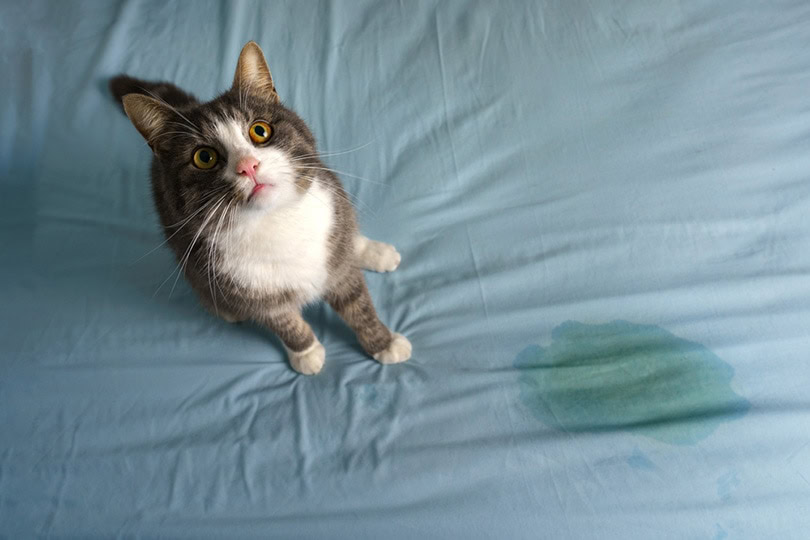
2. Litter Box Issues
Many reasons surround litter box issues that may cause your cat to pee on your clothes instead of using the litter box. They are as follows:
- Unclean Litter Box: If you haven’t scooped or cleaned the litter box in a while, odds are your cat won’t use it. Make sure to clean the litter box daily.
- Too Much Litter: There’s no need to overload the litter box. Cats generally like the litter to be shallow, so you really only need a couple of inches.
- Bad Location: You should consider changing where you keep the litter box. For example, if you keep it in the laundry room, your cat may not be too fond of the washing machine or dryer. Try relocating to a private and quiet spot.
- Litter Box Sides Too High: If the sides are high, your cat may feel like it’s too much trouble to use, especially if you have a senior cat. Try a litter box with low sides so your kitty can step into it more easily.
- Not Enough Boxes: Generally, it’s a good idea to have more than one litter box in the house, even if you have just one cat, as you need an extra box per cat. If you have two cats, you’ll need three litter boxes.
- Dislike of Hoods and Liners: Having hoods and liners may make your cat uncomfortable when it’s time to go potty. If that’s the case, your clothes may seem like a more suitable and comfortable option.
3. Seeking Attention
Some cat parents think their cats want nothing to do with them, but that’s not the case. If you leave your cat alone for long periods or don’t play or interact with them, they may just pee on your clothes to get your attention. Make sure to have plenty of cat toys around and engage in play with your kitty.
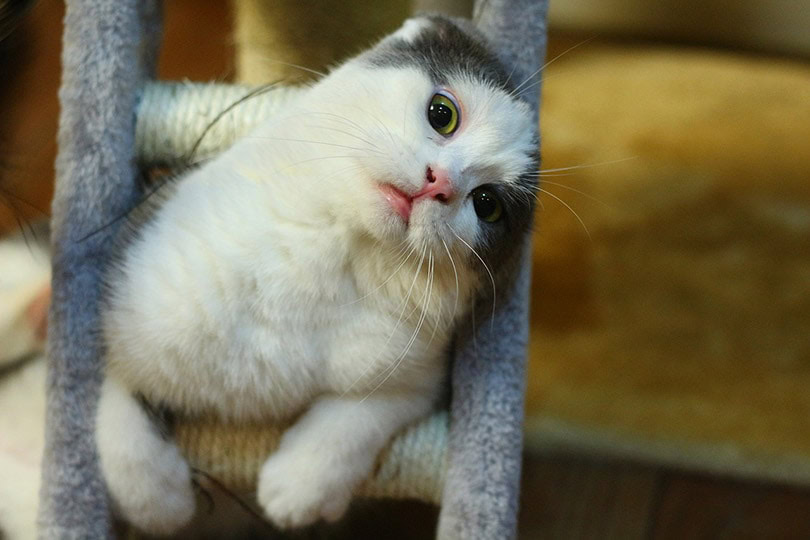
4. Fear/Stress
If you have multiple cats, the cat that’s peeing on your clothes may be being bullied. Maybe the litter box is in a place where your cat doesn’t feel safe with the other cats, and that will make the pile of clothes gathered on the floor or in the laundry basket more enticing. Try setting a box for the fearful kitty in a safe and secure spot where they feel comfortable.
- See Also: Do Cats Pee When Scared?

Medical Reasons
5. Feline Lower Urinary Tract Disease
This condition affects the bladder and the urethra. It can cause an increase in urination frequency and painful urination. With the increased frequency, your cat may pee on your clothes instead of the litter box.
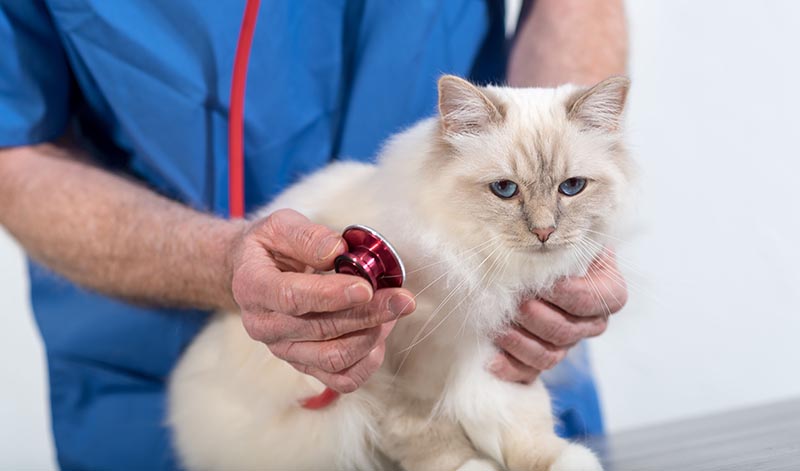
6. Hyperthyroidism
This medical condition also causes an increase in thirst and urinary frequency. Hyperthyroidism is a common disease in cats and can be managed successfully by your veterinarian.
- See Also: Best Cat Foods for Hyperthyroidism
7. Diabetes
Type I diabetes is when the pancreas does not produce enough insulin, meaning your kitty’s body cannot balance blood sugar or glucose levels. Type II diabetes is the most common in felines. In this condition, a cat’s pancreas produces insulin, but the tissues are unable to use it for glucose metabolism. This is called insulin resistance. In both cases, the result is increased thirst, appetite, and urination and weight loss.
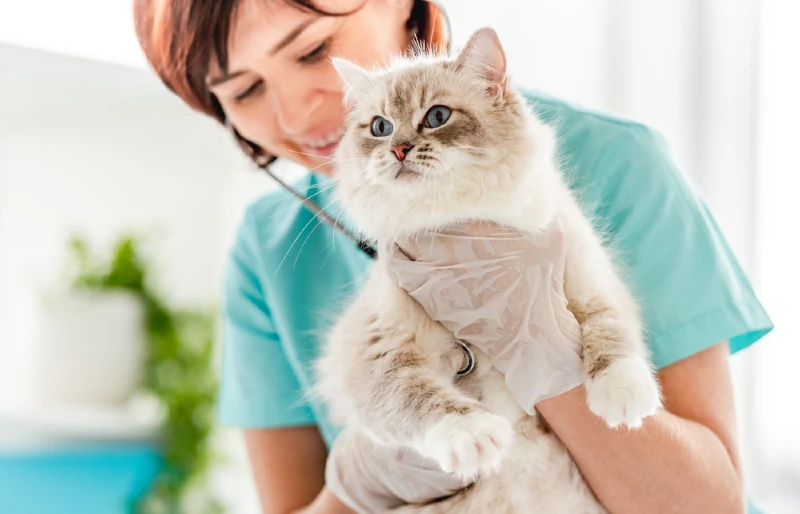
8. Bladder Stones
These stones are collections of crystals and minerals that form in the bladder. Along with frequent urination, other signs of bladder stones are pain when trying to pee, blood in the urine, or genital licking.
9. Kidney Disease
Kidney disease causes frequent, diluted urination. Other signs of kidney disease are loss of appetite, bad breath, lethargy, and pale gums.
You should schedule a consultation with a vet if you suspect your cat may be suffering from underlying medical or behavioral issues.

Conclusion
When your cat is peeing on your clothes, try not to get too discouraged because there are remedies if the problem is behavioral. Remember first to rule out any medical conditions that may be causing the issue. You may also want to consider spaying/neutering your cat to help stop your cat from peeing on your clothes as a marking behavior.
Related Reads:
- How to Find Hidden Cat Pee and Get Rid of the Smell
- How to Get Cat Pee Out of a Comforter
- Why Is My Cat Peeing in the Sink?
- How to Get Rid Of Old Cat Urine Odor
